Session Ⅰ – 2 hours: North America and Europe – Time Zone
Keynote Talk 1
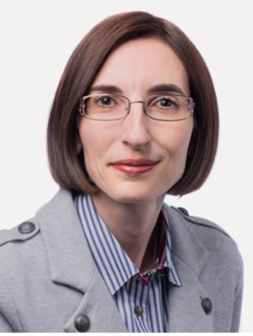
Angela Nicoara
Professor
Head of IoT Innovation Lab
Department of Computer Science
Lucerne University of Applied Sciences, Switzerland
Title: IoT and Edge Computing Revolution: Challenges, Technologies and Future Trends
Abstract: In an increasingly digitized world, the future will see intelligent cities, where IoT-connected devices and sensors are used everywhere. IoT has taken hold in many areas, such as smart buildings, transportation, manufacturing, agriculture, and others. By 2025, that number is expected to reach nearly 42 billion. Energy efficiency, performance, and security of smart, secure, and connected devices at the edge of IoT are critical for realizing intelligent, robust, and sustainable end-to-end systems that deliver compelling new capabilities based on data analytics. The amount of data being generated by connected devices is massive, which will need to be collected, stored, managed, and analyzed. The vast amounts of IoT data, availability requirements and role of this data will drive industries to develop, adopt and deliver more IoT intelligent architectures, IoT distributed computing technologies, and IoT-specific edge networks. These will transform businesses, people’s lives and the global economy, and drive growth and massive economic transformations in our global market in the coming years. In this talk, we will discuss how these IoT systems and technologies could change our world, as well as their benefits and challenges. We will show what trends, developments, and effects of IoT are expected, how these trends are driving more and more compute, storage, and analytics capabilities at the edge. Practical real-world examples in manufacturing, smart cities, and energy industries show where the opportunities and challenges lie.
Biography: Angela Nicoara is Professor of Computer Science at Lucerne University of Applied Sciences and Arts (HSLU), Switzerland heading the IoT Innovation Lab and IoT Systems and Software Research Group. She is an impact-driven technical leader, systems researcher, and innovator with over 20 years of experience in industry and research, with a proven track record of building breakthrough technologies, systems, and software architectures in IoT, mobile, and distributed systems from inception to widespread adoption (at Intel USA, Deutsche Telekom USA, Google USA, ETH Zurich, Caatoosee Ltd, WebQuote USA, HSLU Switzerland). She has deep knowledge of technology, software, and business with education at ETH Zurich, Switzerland (PhD in Computer Science). Angela worked intensively and advanced state-of-the-art in these areas and published peer-reviewed articles that have appeared in numerous leading technical conferences, workshops, and symposia proceedings. She holds several patents for mobile systems. Angela is a regular speaker and panelist at premium international industry and scientific conferences. She received several prestigious awards and honors for her work and technical contributions, including Intel Division Recognition Award, Women in IT Awards USA – Finalist – “Innovator of the Year” (Top 10 Women Innovators in USA), Best Paper Awards from IEEE RTAS and ACM WWW, Deutsche Telekom Innovation Award. Her work has been quoted by the press and media, as well as co-chaired and served as review board and TPC member of multiple industry and scientific conferences. She is a member of ACM and IEEE societies.
Keynote Talk 2
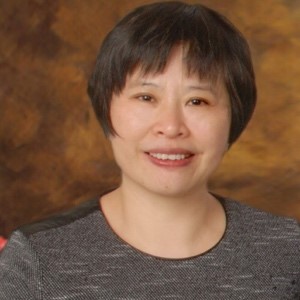
Wenfang Xie
Professor
Dept. of Mechanical, Industrial and Aerospace Engineering
Concordia University, Canada
Title: Reinforcement Learning Based Dynamic Path Following of Industrial Robots
Abstract: Enhancing industrial robot path following accuracy requires the real-time feedback of an external sensor. This study introduces a position-based visual servoing (PBVS) scheme to decrease path error by correcting the Cartesian pose in real-time. The vision system estimates the end effector pose from which the Cartesian pose offset is calculated. The robot’s internal control system treats the pose offset as a high-level control input and induces real-time modification of the robot’s intrinsic motion. A proportional-integral-derivative (PID) controller is utilized as the baseline control method. Due to the repetitiveness of robot tasks, the control performance undergoes iterative improvement via the supplementation of a reinforcement learning(RL)-based controller trained via a state-of-the-art actor-critic algorithm. The experimental platform comprises two commercial systems: a C-Track 780 dual camera sensor from Creaform and a M-20iA robot from FANUC. In a position-only line following experiment, the effect of RL-based controller supplementation significantly enhances path accuracy by attenuating overshoot. The mean absolute error (MAE) and the maximum error are reduced by 10% and 20%, respectively. In terms of the Euclidean norm, the maximum path error is 0.09 mm.
Biography: Dr. Wen-Fang Xie is a full Professor with the Department of Mechanical, Industrial & Aerospace Engineering at Concordia University, Montreal, Canada. She was an Industrial Research Fellowship holder from Natural Sciences and Engineering Research Council of Canada (NSERC) before she joined Concordia University as an assistant professor in 2003, was promoted to Associate Professor in 2008 and full professor in 2014. She received her Ph.D from the Hong Kong Polytechnic University in 1999. Her research interests include identification and control in mechatronics, artificial intelligent control, advanced process control and robotic visual servoing. She has published over 200 journal and conference papers and has graduated over 14 Ph.D and 30 M.A.Sc students. She has received various grants including NSERC Discovery grant (since 2003), NSERC Create grant, NSERC Horizon grant, FQRNT (principal investigator), MDEIE International Research and Innovation Initiatives, NSERC CRD grant (twice), CFI leading edge. She has been an active member of many IEEE conference organizing committees. She is a CSME fellow and IEEE senior member. She is an associate editor of ISA transaction, Editorial Board member of Journal of Mechatronics and International Journal of Advanced Robotic Systems.
Keynote Talk 3
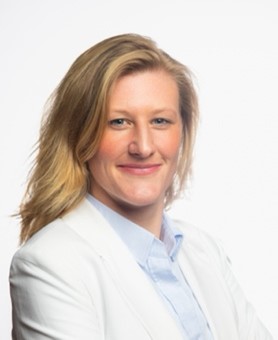
Julia Moller
Senior Consultant
Siemens AG, Digital Industries, Germany
Title: Digitalization in Field Service
Abstract: Enroute in the plant with a tablet, a smartphone or even AR glasses: images of production workers and maintenance staff are becoming more frequent – as symbol for Industry 4.0 and digitalization. The reality looks somewhat different. Service technicians are often seen holding binders, pens, and printed documents (Excel lists) when they are walking through plants. To put it short, the main challenges for plant operators and technical company staff are the following: 1. Time-consuming search and validation of information as well as cumbersome change management due to heterogeneous corporate systems (data inconsistency); 2. Gathering all relevant and current plant documentation from different data sources; 3. Loss of know-how due to the departure of key employees, due to illness, fluctuation, and retirement; 4. Desire for modern equipment as incentive for new, young, and qualified employees. As a standalone version, the revolutionary COMOS Mobile Worker provides all important digital information necessary for the work in the field from different systems (ERP, CAE, DMS, DCS, etc.) in a consolidated manner. This allows the employee to easily and quickly access all relevant data with a mobile device. Changes made by employees are consistently updated in the corresponding source system. Thanks to the high user friendliness based on an easy-to-use graphical user interface the COMOS Mobile Worker ensures a quick usability for processes in the field.
Biography: Julia is a multidisciplinary professional with over a decade of international experience. She is passionate about bringing people and digitalization together where technology and business needs meet. Her practical experience was gained during several years as a Global Technical Field Engineer working for Schlumberger during various assignments in the U.S., Argentina, and Norway. During the last years Julia combined the oilfield knowledge with digitalization at SAP and supported customers in finding optimal industry 4.0 solutions for their specific challenges. In her current role as Senior consultant Oil & Gas at Siemens, Julia is the focal point for operators, suppliers, and service companies in Germany’s upstream, tank terminal, refinery, and pipeline sectors. Her goal is to provide sustainable, efficient, and safe digital solutions throughout the Oil and Gas value chain.
Keynote Talk 4
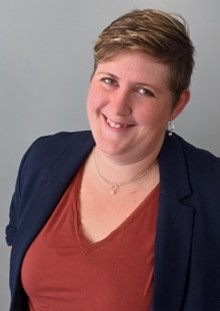
Meaghan Charest-Finn
Assistant Professor
Department of Automotive and Mechatronics Engineering
Ontario Tech University, Canada
Title: How must we change automation strategies to effectively leverage Machine Learning in mechatronic systems?
Abstract: The rapid progression of machine learning in every aspect of human life may sometimes feel like a runaway train. Its application is considered a disruptive technology because of its profound impact across many industries, markets, and individuals. In terms of process automation, this is evidenced by the broad integration of machine learning models in control algorithms and intelligent sensors sometimes referred to as Industry 4.0. Overall, we are now able to capture complex system dynamics and integrate them into machine control decisions at a high level. As we continue the development of these tools, new boundaries of what can be achieved by mechatronic systems will be defined. We must consider how to adapt and build new control algorithms to usher in a new generation of safe and responsible intelligent systems.
Biography: Dr. Meaghan Charest-Finn is an assistant professor in the Faculty of Engineering and Applied Science in the Department of Automotive and Mechatronics Engineering at Ontario Tech University. She teaches Mechatronics Design, Machine learning and Artificial Intelligence amongst other courses. Her research focuses on developing advanced automation methods to control complex systems effectively. She has worked on integrating Model Predictive Controls and Machine learning schemes into the modelling and control of real-world systems. As we enter a new frontier of automation Dr. Charest-Finn is exploring the dynamics of using these technologies to build human intuition into machines and push the boundaries of how humans and machines can interact.
Session Ⅱ – 2 hours: Asia and Australia – Time Zone
Keynote Talk 1
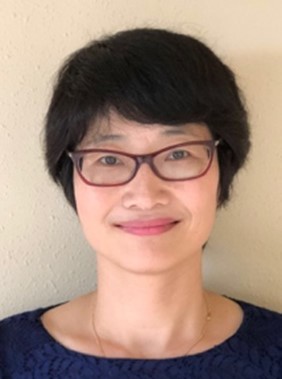
Ying Tan
Professor and Reader, IEEE Fellow
Department of Mechanical Engineering
University of Melbourne. Australia
Title: Model-guided data-driven optimization and its applications in automotive industry
Abstract: Efficiently optimizing performance is a perpetual demand in manufacturing, but the intricate nature of industrial systems often thwarts attempts to formulate optimization problems analytically. In recent times, data-driven approaches have gained prominence as effective means to discover optimal solutions for complex systems, relying on input-output data collected from sensors. However, the process of learning from data is inherently time-consuming. This presentation delves into the utilization of model information, even when imprecise, to enhance the learning speed of data-driven optimization techniques, such as extremum seeking. By incorporating model-guided insights, we aim to expedite the optimization process and harness its potential benefits for industrial applications such as automotive industry.
Biography: Ying Tan is a Professor within the Department of Mechanical Engineering at The University of Melbourne, Australia. She embarked on her academic journey by obtaining her bachelor’s degree from Tianjin University, China, in 1995, and furthered her education by completing her PhD at the National University of Singapore in 2002. Dr. Tan’s scholarly path then led her to McMaster University, where she commenced her career as a postdoctoral fellow in the Department of Chemical Engineering in 2002. Since 2004, she has been an esteemed member of The University of Melbourne. Dr. Tan’s outstanding contributions to the field have been recognized with prestigious awards, including an Australian Postdoctoral Fellowship from 2006 to 2008 and a Future Fellowship from 2009 to 2013, both conferred by the Australian Research Council. Dr. Tan is widely regarded for her expertise and accomplishments, holding the esteemed title of Fellow in multiple renowned organizations, including the Institute of Electrical and Electronic Engineers (FIEEE), the Institution of Engineers of Australia (FIEAUST), and the Asia-Pacific Artificial Intelligence Association. Her research portfolio encompasses a diverse range of interests, spanning intelligent systems, nonlinear systems, real-time optimization, sampled-data systems, rehabilitation robotic systems, human motor learning, wearable sensors, and model-guided machine learning.
Keynote Talk 2
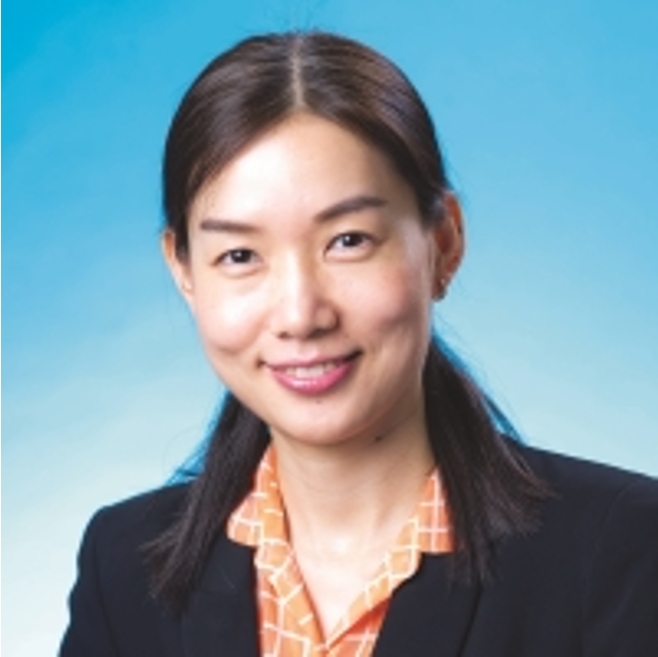
Lu Liu
Professor
Department of Biomedical Engineering
City University of Hong Kong, China
Title: Event-Triggered Cooperative Control of Multi-Agent Systems
Abstract: Cooperative control of multi-agent systems has received considerable attention in the systems and control community over the past two decades. This is mainly because of its immense potential in various real-world applications, including search-and-rescue by a team of unmanned ground and aerial vehicles, and ocean sampling using a fleet of underwater gliders. In this talk, we will focus on addressing the cooperative output consensus problem for heterogeneous linear multi-agent systems using an event-triggered control approach. First, a brief overview of the event-triggered control method will be provided. Then, we will propose a distributed event-triggered control strategy that incorporates an adaptive event-triggering mechanism specifically designed for the considered systems. By employing this control strategy, the output consensus of the system is achieved asymptotically with intermittent communication. The proposed event-triggering mechanism is independent of any global information and eliminates the need for continuous monitoring.
Biography: Dr. Lu Liu received her Ph.D. degree in 2008 in the Department of Mechanical and Automation Engineering, the Chinese University of Hong Kong, Hong Kong. From 2009 to 2012, she was an Assistant Professor at The University of Tokyo, Japan, and then a Lecturer at The University of Nottingham, United Kingdom. Then she joined the City University of Hong Kong, where she is currently a full professor. Her research focuses primarily on networked dynamical systems, nonlinear control systems, and distributed systems. She received several best paper awards in flagship conferences, including the Guan Zhaozhi Award of the 27th Chinese Control Conference in 2008, and the Shimemura Young Author Award of the 11th Asian Control Conference in 2017. She received the Excellent Young Scientists Fund (Hong Kong and Macao) from the National Nature Science Foundation of China (NSFC) in 2022. Dr. Liu is an Associate Editor of IEEE Transactions on Cybernetics, IEEE Transactions on Fuzzy Systems, IEEE Robotics and Automation Letters, Control Theory and Technology, and Unmanned Systems. She served in the organizing committee or operating committee of several international conferences including General Chair of the 2022 IEEE International Conference on Real-Time Computing and Robotics, General Chair of the 2022 IEEE International Conference on Control and Automation, Program Chair of the 2021 International Conference on Intelligent Control and Information Processing, and Program Chair of 2017 IEEE International Conference on Control and Automation.
Keynote Talk 3
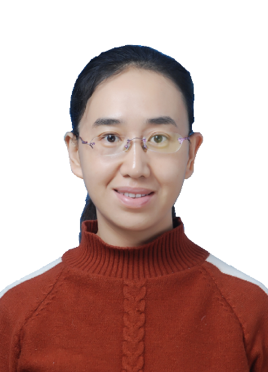
Hong Li
Professor
School of Electrical Engineering
Beijing Jiaotong University, China
Title: The Applicability of Middlebrook Criterion in the Stability Analysis of Power Converters System and New Solution
Abstract: Middlebrook Criterion is the classic stability criterion for power converters system and has been widely used in engineering applications, however, its applicability are not strictly studied mathematically for the power converters system with two or more power converters. In this report, the applicability and limitation of Middlebrook criterion in the stability analysis of power converters system will be discussed and a new time-domain stability analysis method will be introduced and verified by practical application cases.
Biography: Hong Li (Senior Member, IEEE) received the M.Sc. degree in electrical engineering from South China University of Technology, Guangzhou, China, in 2005, and the Ph.D. degree in electrical engineering from Fernuniversität in Hagen, Germany, in 2009. She is currently a Full Professor with the School of Electrical Engineering, Beijing Jiaotong University, Beijing, China. She has published 1 book, 70 journal papers, and 65 conference papers. She has also authorized 45 patents. Her research interests include nonlinear modeling, analysis and its applications, EMI suppressing methods for power electronic systems, wide bandgap power devices and applications. Dr. Li is an Associate Editor of the IEEE Transactions on Industrial Electronics, an Associate Editor of IEEE Transactions on Power Electronics, an Associate Editor of the IEEE Open Journal of Industrial Electronics Society, an Associate Editor of the Chinese Journal of Electrical Engineering, She is an IEEE PELS AdCom Member-at-Large, the Chairman of the EMC special committee of Chinese Power Supply Society (CPSS), and the Vice Chairman of IEEE PELS Membership Committee-China.
Keynote Talk 4
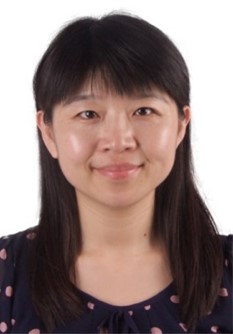
Tianzhen Wang
Professor
Department of Electronic Engineering
Shanghai Maritime University, China
Title: Fault Diagnosis of Tidal Stream Power Generation System
Abstract: As a clean and renewable energy source, tidal current power generation has become an important supplement to the existing power generation methods. However, tidal current turbines work in complex marine environments, the high cost of maintenance has obstructed its promotion. Therefore, it is extremely important to ensure the reliability and efficiency of tidal current turbine. There are some fault diagnosis and fault tolerant control methods for tidal current power generation in this lecture, such as sensor-less methods for blades biofouling detection, non-contact method for fault detection of insulation systems, fault diagnosis and fault tolerant control methods of inverter systems.
Biography: Tianzhen Wang is Full Professor at Shanghai Maritime University and Research Affiliate researcher and Doctoral Supervisor of the Institute de Recherche Dupuy de Lôme (IRDL)of France. Her research interests include fault diagnosis, fault-tolerant control methods, and application in ocean energy. She is the IEEE senior member, committee member of the IEEE Energy Storage Technology Committee, committee member of the National Ocean Energy Conversion Equipment Standardization Technical Committee, Committee member of the CAA Fault Diagnosis and Safety of Technical Process Specialized Committee, and convener of IEC/TC114 Advisory Group 2. And she has published more than 100 papers, 26 patents in China and the United States, 6 books, 5 national standards and 1 IEC standard. She won the IEC 1906 Award.
Organizer 1
Name: Ya-Jun Pan
Affiliations: Department of Mechanical Engineering, Dalhousie University, Canada
Organizer 2
Name: Lucia Lo Bello
Affiliations: the Department of Electrical, Electronic and Computer Engineering, University of Catania, Italy
Organizer 3
Name: Goldie Nejat
Affiliations: Canada Research Chair in Robots for Society, Department of Mechanical & Industrial Engineering, University of Toronto, Canada
Organizer 4
Name: Regina Roos
Affiliations: The Senior Sales Development Lead Europe at Typhoon HIL Inc.
Organizer 5
Name: Jun Xu
Affiliations: School of Mechanical Engineering and Automation, Harbin Institute of Technology, Shenzhen, China